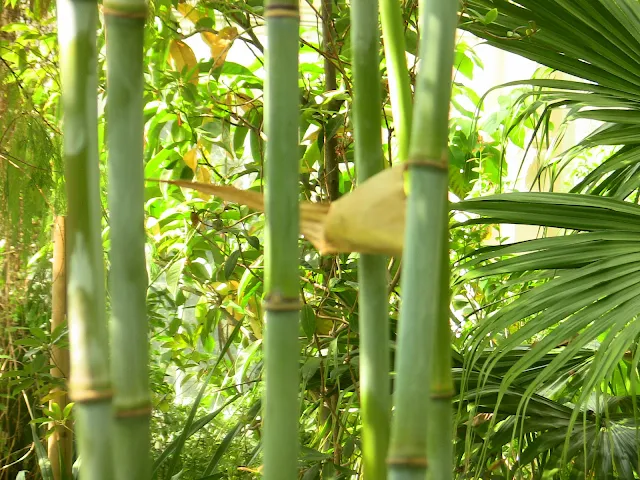Bamboo culm is commonly known as stem or cane.
The culm is comprised of 10 parts.
The bamboo tips are the’ telescopic’ ends of the new shoots with sheath blades sticking out the sides.
Inside the tips, there are lots of activities such as cell divisions and differentiation.
Shoots
The final thickness of the internodes and nodes are already laid down, pre-determined, in the shoots.
The bamboo shoots grow in length into culms and produce branches and leaves.
Buds
Buds from the base of the bamboo grow into shoots and rhizomes.
The ‘lateral’ buds appear at the node and grow into branches.
Culm Sheaths
The sheaths are cloth-like covers that wrap around the new shoots as they emerge and fall off as they mature into culms.
Nodes
The solid joints are called nodes.
They form circular rims around the bamboo culms, every two nodes enclose a hollow internode.
Internodes
The internodes are the hollow cylindrical part between two nodes.
Some internodes are oval-shaped like those of the Buddha Belly bamboo.
Branches
The main branches often grow out of the culm nodes.
Each branch often has its own branch nodes and leaves.
All the branches and leaves put together makes up the bamboo evergreen foliage.
Sulcus
This is the shallow indentation that runs from the branches up the internodes, often conspicuous in Phyllostachys bamboos.
Stem base
This is the lower part of the bamboo culm, sometimes seen just above the ground.
This is the region where new bamboo shoots grow.
Stem petiole
This is the lowest part of the bamboo that connects to the rhizome, often found under the ground.


No comments:
Post a Comment
Thank you for the comment.